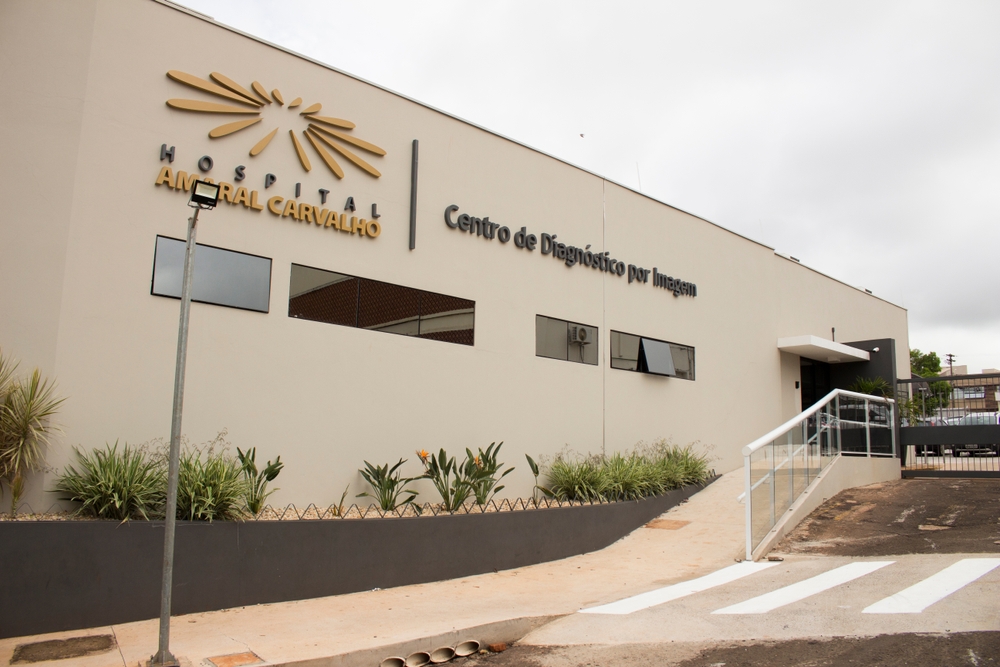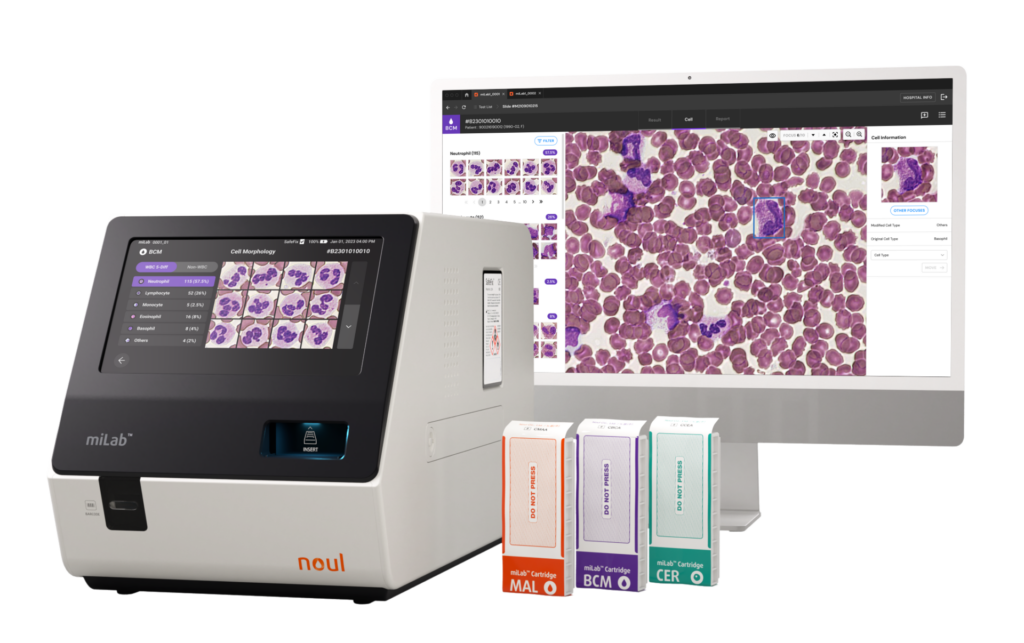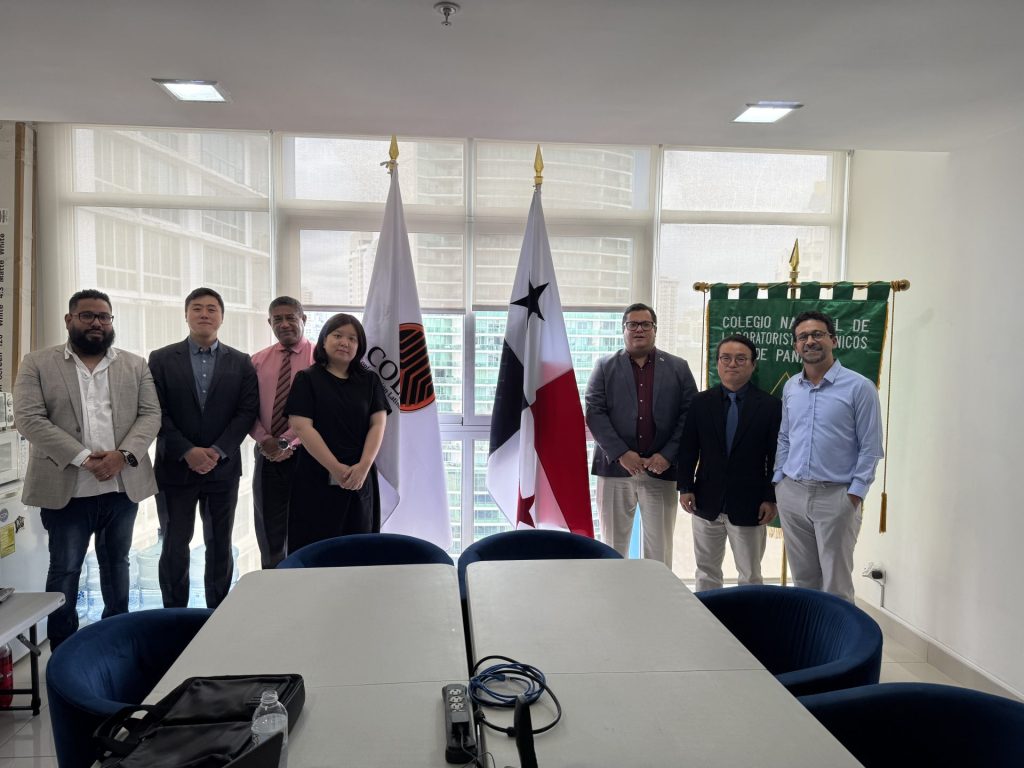
Source: Jorge Maricato / Shutterstock
The healthcare environment in most Latin American countries operates under a dual structure where public and private healthcare systems coexist. As in other regions, the quality and accessibility of medical services vary significantly depending on economic level, health infrastructure, and policy capacity. In particular, Latin America’s vast geographical characteristics further exacerbate regional disparities, leading to challenges in the distribution of medical resources and equitable access to care.
Another notable shift is the active adoption of advanced medical technologies. In the past, infectious diseases such as malaria, tuberculosis, and dengue fever were the primary health concerns in Latin America. However, with the growing prevalence of chronic conditions like cancer, diabetes, and hypertension, the need for more accurate and precise diagnostics has become increasingly important. As a result, demand for innovative, technology-based diagnostic devices is rapidly rising to support early detection and effective disease management.
Three Healthcare Trends Driving NOUL’s Expansion in Latin America
NOUL, driven by its mission to address current healthcare challenges through innovative technologies, made the decision to enter the Latin American market after a thorough analysis of the region’s evolving healthcare landscape. In particular, three structural shifts played a decisive role in accelerating NOUL’s expansion: the transition in disease patterns from infectious diseases to chronic conditions, the region’s geographical characteristics that limit medical accessibility, and the rising demand for new technologies such as AI-based diagnostic solutions.
[Changes in the Healthcare Landscape of Latin America]

Source: noul
NOUL’s decentralized diagnostic automation platform, miLab™, is a solution optimized for the structural characteristics of the Latin American healthcare market. Its portable-sized device helps overcome challenges related to medical accessibility, while the cartridge-based automated system performs the entire process—from sample preparation to analysis and result delivery—within a single unit, enabling a reliable diagnostic environment without the need for complex infrastructure. Notably, the solid-phase staining technology NGSI (Next Generation Staining and Immunostaining) combined with on-device AI enables precise and rapid interpretation, delivering high-quality diagnostic services.
With these features, miLab™ is expected to introduce a new diagnostic paradigm to the Latin American healthcare landscape. In line with this vision, NOUL visited six countries across the region—including Brazil, Argentina, and Panama—in May to present its solutions and conduct market research. During this visit, NOUL showcased its automated blood testing solution, miLab™ BCM, and its digital cervical cytology solution, miLab™ CER, to key partners across the Latin American healthcare ecosystem, laying the groundwork for future market expansion.
Brazil: Challenges and Priorities of Public Healthcare in Cervical Cancer Prevention

Source: noul
Brazil has the largest public healthcare system in South America, the SUS (Sistema Único de Saúde), which provides free medical care to all citizens. In particular, the public health system actively supports cervical cancer screening by offering free Pap smear tests every three years to women between the ages of 25 and 64. In line with WHO’s 2030 cervical cancer elimination strategy, the Brazilian Ministry of Health is also working to expand vaccination programs (HPV vaccines) and screening initiatives.
A diagnostic institution in Brazil is planning to conduct approximately 2 million cytology tests annually. To handle such a substantial volume, there is strong demand for efficient infrastructure and portable, high-performance equipment capable of delivering high-quality medical services regardless of location. In particular, these institutions require innovative solutions that not only perform testing but also ensure seamless linkage to treatment—needs that have been identified not only by specific companies but also by public hospitals, cancer centers, and research institutes. In this context, NOUL’s automated blood testing platform, miLab™ BCM, is expected to serve as an effective solution for addressing the surging local demand more quickly and efficiently, following its approval by Brazil’s regulatory authority, ANVISA.
Argentina’s Challenge Toward Equitable Healthcare

Source: noul
Argentina is regarded as one of the countries in South America with relatively good quality and accessibility in diagnostic testing, including blood tests. The country has a well-established social insurance and private insurance system, allowing workers and higher-income groups to access faster and more specialized medical services through private hospitals.
The country has demonstrated a strong need to improve its infrastructure in order to reduce regional disparities and ensure that high-quality medical services are accessible even in small and mid-sized cities. In particular, there is growing interest in expanding the adoption of automated blood analyzers to reduce the workload of specialized personnel and minimize interpretation variability. Major private diagnostic laboratories, academic hospitals, and some public hospitals have shown significant demand for AI-based blood analysis equipment.
During this field trip, the companies NOUL met demonstrated a deep understanding of the hematology market and expressed strong interest in cytology and AI-based diagnostic devices. They recognized that miLab™ BCM could contribute to improving consistency in blood test quality and enhancing testing speed in Argentina, and they actively engaged in learning more about the product.
Panama’s Challenge: Gaps in Healthcare Accessibility

Source: noul
Panama is considered to have a relatively stable and well-structured healthcare system among Latin American countries. However, the incidence of cervical cancer stands at 16.1 cases per 100,000 population, with a mortality rate of 8.4 per 100,000—levels that remain high compared to other countries in the region. This highlights persistent challenges in prevention and screening systems. Panama primarily uses Pap smear tests for cervical cancer screening, provided free of charge through public hospitals.
However, the quality of sample collection and interpretation is inconsistent, and results often take several weeks, leading to cases where linkage to treatment is not properly achieved. Liquid-based cytology (LBC) is available only in private hospitals, with test costs ranging from $100 to $120 per case, imposing a significant financial burden on patients.
The diagnostic institution that NOUL visited in Panama was a newly established hospital built by the government with the aim of centralizing healthcare services. Although the infrastructure has been improved, the process of integrating previously dispersed facilities has inadvertently led to reduced healthcare accessibility. Panamanian medical institutions recognized the strong potential demand for miLab™ CER, given its capability to provide same-day diagnosis and interpretation. Reflecting this need, NOUL recently secured a supply agreement for miLab™ CER with six Central American countries, including Panama.
The Current Landscape of Diagnostics in Latin America as Experienced by NOUL
Through direct experience with the healthcare landscape in Latin America, NOUL confirmed that the region has, in general, established solid infrastructure and that government policies are well designed to provide high-quality medical services free of charge or at low cost. However, NOUL also identified key challenges: advanced infrastructure is concentrated in specific regions, resulting in disparities in healthcare quality across areas, and a shortage of specialized personnel is making it increasingly difficult to meet growing demand.

Source: Antonio Salaverry / Shutterstock
Building on these insights, NOUL is confident that the miLab™ platform—designed to maximize diagnostic efficiency through automation—can serve as an optimal solution for the healthcare environment in Latin America. The company is actively advancing its market entry, including securing regulatory approvals. A notable example is the recent approval of miLab™ BCM by ANVISA, Brazil’s regulatory authority, allowing its use in hospitals, laboratories, and research institutes across the country. In addition, the automated cervical cancer diagnostic solution, miLab™ CER, has recently been contracted for supply to six Central American countries, including Panama, the Dominican Republic, Costa Rica, Honduras, Nicaragua, and El Salvador.
In addition, NOUL’s miLab™ has recently secured supply agreements in Italy, Qatar, and Benin, successfully expanding into Latin America following its presence in Europe, the Middle East, and Africa. With this, NOUL aims to establish miLab™ as a global healthcare solution. If you are interested in miLab™, the unique solution designed to bridge healthcare gaps worldwide and enhance the quality of medical services through innovative technology, please click the link to learn more.

